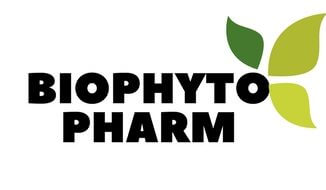Apple Cider Vinegar for Acid Reflux: Nature’s Controversial Remedy 🍎🔥
Acid reflux—often described as a burning sensation in the chest or sour taste in the mouth—is a common digestive complaint that affects millions worldwide. While conventional treatments like antacids and proton pump inhibitors offer relief, many wellness seekers are turning to natural alternatives. One remedy that’s sparked both curiosity and controversy is apple cider vinegar (ACV).
But can something so acidic actually soothe acid reflux? Let’s explore the science, the stories, and the safe ways to experiment with this age-old tonic.
🌿 What Is Apple Cider Vinegar?
Apple cider vinegar is made by fermenting crushed apples in a two-step process. First, yeast converts the sugars into alcohol. Then, bacteria transform the alcohol into acetic acid, the main active compound in vinegar.
Organic, raw ACV contains the “mother”—a cloudy web of enzymes, proteins, and beneficial bacteria believed to enhance its health benefits. This version is often preferred for therapeutic use.
🔥 Understanding Acid Reflux
Acid reflux occurs when stomach acid flows backward into the esophagus, irritating its lining. This can result from:
A weakened lower esophageal sphincter (LES)
Overeating or lying down after meals
Trigger foods (spicy, fatty, acidic)
Stress and poor digestion
Low stomach acid (hypochlorhydria)
Interestingly, while reflux is commonly blamed on too much acid, some cases may stem from too little acid, which impairs digestion and causes the LES to relax improperly.
🍎 The Theory Behind ACV for Acid Reflux
Proponents of ACV suggest that it:
Increases stomach acidity to improve digestion
Balances gut bacteria due to its probiotic content
Stimulates digestive enzymes for smoother breakdown of food
By restoring proper acidity, ACV may help the LES stay closed and prevent reflux. However, this theory is largely anecdotal, and scientific research is limited.
🧪 What Does the Research Say?
While ACV is widely used as a home remedy, clinical evidence is sparse:
A small 2015 study suggested raw ACV might help with heartburn, but the sample size was too small to draw firm conclusions.
Some integrative medicine practitioners report symptom improvement when ACV is combined with other supplements like magnesium and probiotics.
No major medical journals have published definitive studies confirming ACV’s effectiveness for acid reflux.
That said, many people report subjective relief, and ACV is generally considered safe in small, diluted amounts.
🥄 How to Use Apple Cider Vinegar Safely
If you’re curious to try ACV for acid reflux, here’s how to do it mindfully:
✅ Dilution Is Key
Never drink ACV straight—it’s highly acidic and can damage tooth enamel and the esophagus.
Suggested method:
Mix 1 teaspoon to 1 tablespoon of ACV in a glass of warm water
Drink before meals to support digestion
Use a straw to protect your teeth
Rinse your mouth afterward
🍯 Optional Additions
Add raw honey for taste and additional soothing properties
Combine with ginger or lemon for digestive support
⚠️ Potential Risks and Side Effects
While ACV is generally safe, it’s not risk-free:
| Risk | Description |
|---|---|
| Tooth enamel erosion | Acid can wear down teeth over time |
| Throat irritation | May cause burning or coughing if undiluted |
| Digestive upset | Can worsen reflux in some individuals |
| Medication interactions | May interfere with insulin, diuretics, or potassium levels |
Avoid ACV if you have:
Ulcers or gastritis
Low potassium levels
Severe acid reflux or GERD
Allergic reactions to vinegar
Always consult your healthcare provider before starting any new remedy—especially if you’re on medication.
🧘♀️ Complementary Lifestyle Tips
ACV works best when paired with holistic habits that support digestive health:
🍽️ Eat Mindfully
Chew thoroughly
Avoid overeating
Eat smaller, balanced meals
🛌 Adjust Your Routine
Don’t lie down immediately after eating
Elevate the head of your bed
Sleep on your left side to reduce nighttime reflux
🚫 Avoid Triggers
Spicy, fried, and acidic foods
Caffeine and alcohol
Smoking and stress
💬 Real-Life Testimonials
“I started taking ACV before meals and noticed less bloating and fewer reflux episodes. It’s not a miracle, but it helps.” — Lina, 34
“ACV didn’t work for me—it actually made my heartburn worse. But switching to smaller meals and herbal teas did the trick.” — Karim, 42
“I use ACV in salad dressings and morning tonics. It’s part of my wellness ritual, and my digestion feels more balanced.” — Amira, 29
These stories highlight the individual nature of healing—what works for one may not work for another.
🌿 Alternatives to Apple Cider Vinegar
If ACV isn’t your cup of tea, consider these natural remedies:
| Remedy | Benefit |
|---|---|
| Aloe vera juice | Soothes inflammation and heals the gut lining |
| Slippery elm | Coats the esophagus and reduces irritation |
| Licorice root (DGL) | Supports mucosal healing and reduces acid |
| Chamomile tea | Calms the nervous system and digestive tract |
| Fennel seeds | Relieve bloating and gas post-meal |
These herbs and tonics can be used alone or in combination with ACV for a more personalized approach.
🌟 Final Thoughts: Is ACV Worth Trying?
Apple cider vinegar is not a cure-all, but it may offer gentle support for those with mild or occasional acid reflux—especially when low stomach acid is a contributing factor. Its probiotic and digestive-enhancing properties make it a valuable tool in the natural wellness toolkit.
However, it’s important to:
Start slow
Dilute properly
Monitor your body’s response
Consult a professional if symptoms persist
Holistic healing is about listening to your body, experimenting safely, and choosing remedies that align with your unique needs.
So if you’re curious, give ACV a try—but let it be part of a broader journey toward digestive harmony.
Read More: Apple Cider Vinegar Benefits for Acne
Read More: Top 07 Herbal Remedies for Stomach Acidity
Read More: Apple Cider and Apple Cider Vinegar
Read More: Home Remedies for Acid Reflux







